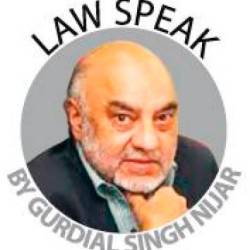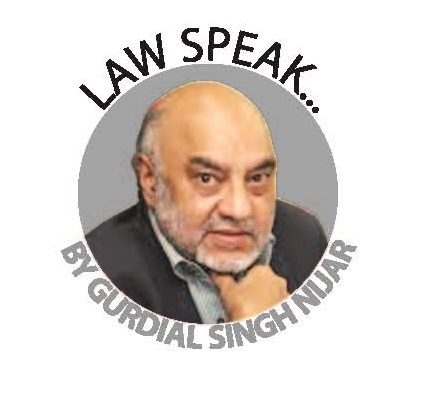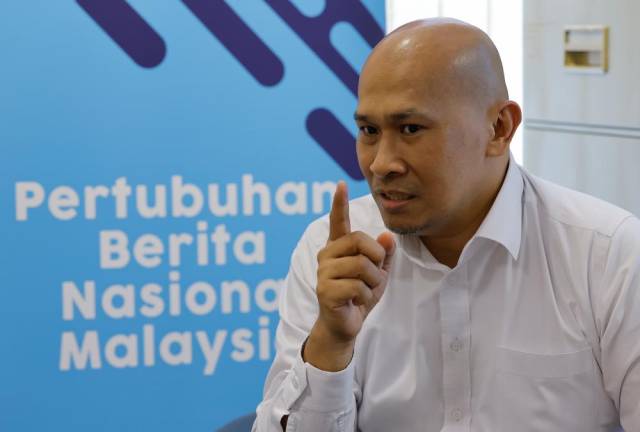PERHAPS it could be construed as a blight of our justice system when two Court of Appeal decisions struck out actions against Datuk Seri Najib Razak, the then prime minister for alleged wrongdoing in executing his public office. In particular, allegedly pocketing 1MDB funds. On the basis that such actions for misfeasance could only be brought against “public officers”. And, ruled these courts, the prime minister was not such a person.
The decisions raised considerable disquiet in the public mind.
Indeed, the High Court judge deciding the case said rather apologetically that many may find his ruling “most surprising and quite unpalatable to swallow”.
For it then immunises a prime minister from the reach of the law by saying he is not a “public officer” – what else could he be when he draws his salary from public funds; and is entrusted with the task of fulfilling public duties on behalf of the nation?
This renders illusory: “Be ye never so high, the law is above you” – Thomas Fuller’s wisdom cited by courts the world over. By Lord Denning in the 1977 Gouriet case; and our Federal Court in PP v Ottavio (2004).
And recently by a seven-member bench of the Federal Court led by Chief Justice Tan Sri Tengku Maimun in Tony Pua v Najib Abdul Razak. Which overruled the previous decisions.
The Federal Court held that it was wrong to say that the prime minister was not a public officer.
Said Justice Nallini in delivering the Federal Court’s grounds of judgment, it would be a violation of the rule of law to exonerate the prime minister for “outrageous” conduct where he was “alleged to have acted unlawfully, illegally, recklessly and/or knowingly in relation to substantive quantities of funds to the ultimate detriment of ... the general public”.
This would be “anathema to the doctrine of the rule of law and the fundamental basis of the Federal Constitution”. Because then a prime minister “can act with impunity, so as to knowingly and/or recklessly dissipate public funds and remain immune to civil action in tort ...”. Such a construction of the term “public officer”, which erodes the rule of law, is repugnant and cannot prevail.”
The comprehensive, lucid and admirably analytical judgment had no difficulty in debunking the two Court of Appeal decisions that had held that the prime minister did not come within the definition of a “public officer” under the Interpretation Acts and the Federal Constitution; and could not therefore be sued for the tort of wrongdoing in public office.
First, said the judgment, any “public officer” can be sued for wrongdoing for the tort of misfeasance under the common law – defined as a body of legal rules that have been made by judges in cases, as distinct from rules and laws made by Parliament or in official statutes.
The essence of this tort is that public power cannot be abused in bad faith.
Hence it applies, said the judgment, to holders of the highest offices in administration who are entrusted with the greatest public power and corresponding duty to exercise it for the public good.
To immunise the prime minister and ministers would be repugnant to common sense and the rule of law.
Secondly, neither the Federal Constitution nor any act specifically modified or abrogated the common law as regards the liability of “public officers” as widely defined to include persons in the position of the prime minister.
The earlier decisions of the Court of Appeal and the High Court had ruled that the prime minister and members of the Cabinet are members of administration and not public officers because they were not included in the list of “public services” in Article 132 of the Federal Constitution.
This reasoning was flawed, ruled the Federal Court. Because Article 132 merely identified the bodies and persons involved in the governance structure of the country. It was not meant to do away with the common law definition of the term “public officer”.
The judgment is remarkable in many respects. It locates the tort of misfeasance in public office as grounded in the rule of law. Thus placing all within the reach of the law.
It reinforces executive accountability to legal authority. It upholds the public interest in bringing public servants guilty of outrageous conduct to book.
It dispels the notion that anyone – no matter how high – who abuses his public office is free to act with impunity. And it accords any citizen the standing to make a claim for the loss suffered when a prime minister entrusted with public funds uses them for his personal benefit – if indeed he or she can prove such damage.
The case will now proceed to trial for the litigant to prove the misappropriation of public funds and the loss suffered.
This is a landmark judgment that resoundingly places the role of the judiciary in preserving the “internal architecture” of our constitution – which comprises the rule of law and the separation of powers.
It will long stand out as a judgment which resonates with the words of Montesquieu – a French judge and philosopher, famous for his articulation of the theory of separation of powers: “There is no greater tyranny than that which is perpetrated under the shield of the law and in the name of justice.”
Gurdial is a former law professor. Comments: letters@thesundaily.com
















